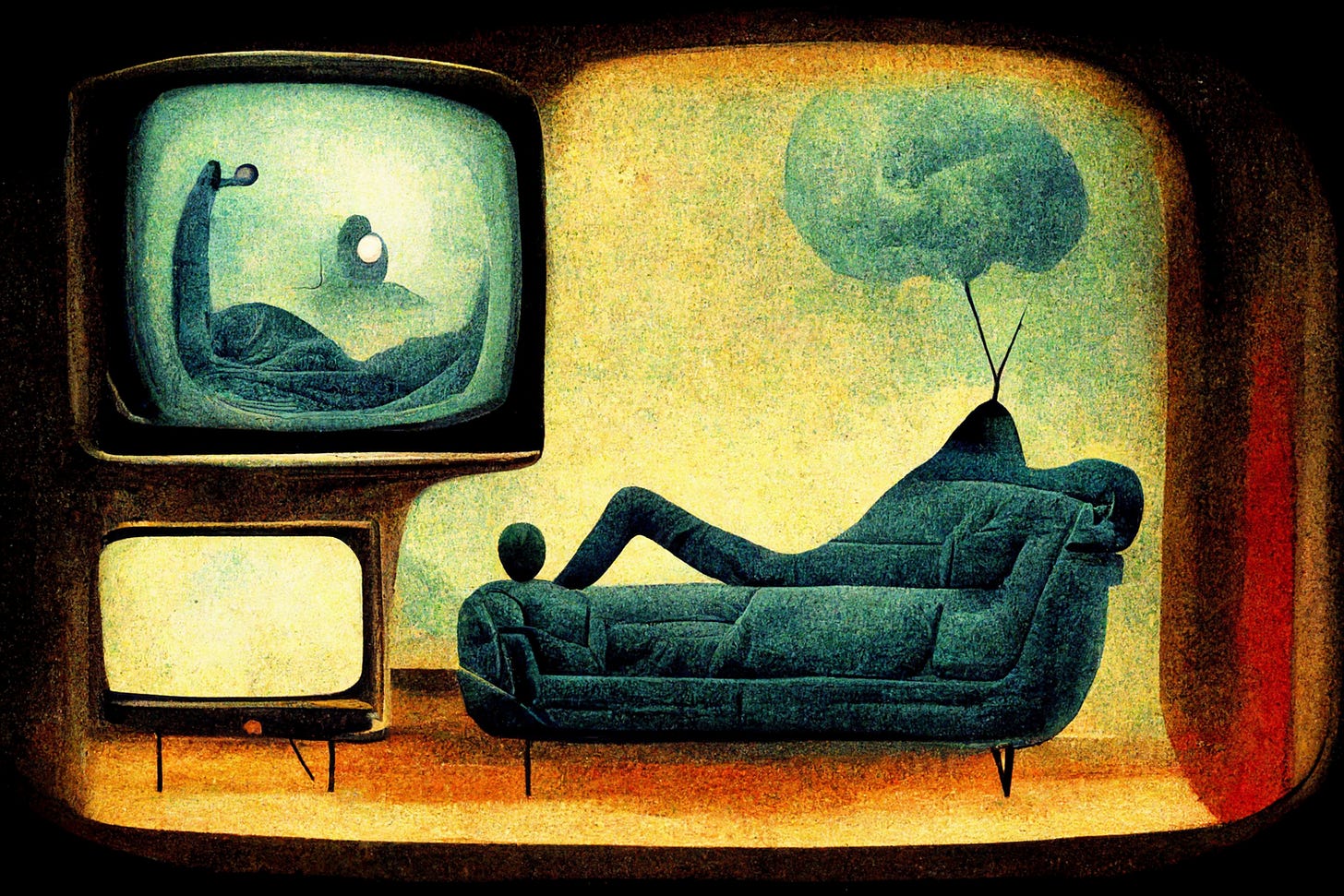Why Is Everyone So Lazy?
They're so lazy they won't even read this
Everyone is “lazy” because that’s the simplest plausible reason the brain can come up with to explain the failure of complicated processes. Well, sometimes the brain will blame some more explicit moral failure, but laziness is great because it can be used to explain almost any result we don’t like. Why is the framerate bad on Switch games? It’s definitely because the developers are lazy (and not because it’s a complicated interaction between visual quality, interactive feel, and platform-specific tech). Why can’t I get all my schoolwork done? It’s definitely because I’m a lazy failure (and not because confusing priorities and failed feedback make it very hard to move forward).
In Social Psychology, blaming things on individual laziness is a perfect example of what is called the Fundamental Attribution Error. This is the tendency to assign blame to broad personal traits like “lazy” or “evil” instead of to specific things like “sleeping really poorly the night before the test”. I’m not going to bother arguing about how true the effect is in a statistical sense, but it makes perfect sense that the brain does this. Our brains are constantly trying to figure out why things happen, because it improves our ability to predict the future and achieve goals we care about. If we happen to know (and believe) the detailed reasons behind a failure, we will attribute that failure to those details. But if that information isn’t available it’s more useful to attribute failure to “laziness” instead of “something we know nothing about.”
So when are people actually lazy? Humans only start difficult tasks when our brains decide that a particular goal is both achievable and worth the effort. It’s not lazy to give up on an impossibly difficult task, but the rational/verbal parts of our brains that make moral judgments often disagree with the motivational parts that actually get things done. Laziness is when an observer assigns a task they think is reasonable and valuable to an actor (possibly themselves), and then perceives a low level of effort by the actor towards that task. This mismatch is caused by a combination of different “failures” that all get lumped together into the same thing:
The task is harder than the observer expects, for non-obvious reasons
The task provides much more value to the observer than it does to the actor
The actor fails to see a valuable task as worth it, based on their learned set of values
The actor fails to see a reasonable task as achievable, due to evidence from previously failed attempts or something like depression
The actor doesn’t know how perform the task efficiently
The actor is distracted by other, higher priority tasks
The actor has less available mental (willpower) or physical energy than expected
It is never fair to call someone lazy just because an observer fails to properly understand the real difficulty or value of a task. This means that “true” laziness is some combination of an actor’s failure to perceive the real difficulty/value of a task, lack of procedural knowledge, difficulties with task prioritization, and lower than expected energy. In real life all of these factors are very specific to the task or situation and don’t seem particularly moral, but the brain averages our perception of those factors across different tasks and assigns that to the fundamental value of “laziness”. We’re only vaguely okay at evaluating this for people we know well, but it’s impossible to accurately evaluate the laziness of strangers.
The easiest way to spot a racist is to wait for them to accuse some race (or other large group) of being inherently lazy or unmotivated. There are plenty of cultural and individual factors that can easily explain why people have different levels of motivation for different activities, but blaming generic laziness for social failures is… extremely lazy. Racists know that accusing an entire race of being evil in some specific way is socially unacceptable and easy to disprove. But because they’re unwilling to learn how things actually work, they have to fall back on blaming vague moral failures instead of specific situations or systems.
In the modern world we are constantly exposed to the failure of processes involving people we don’t know. When people working long hours fail to make the best possible decisions in complicated situations, it’s a lot easier to blame laziness than the details of a system we don’t understand. Back when we lived in small tribes, it was fairly easy to use direct observation or gossip to see how hard the other farmers or hunters were working. Gossip probably evolved in the first place to deal with the problem of lazy free riders who wouldn’t put in their fair share of effort. But with the complicated, opaque processes that run modern life it is ridiculously hard to know if someone is putting in the “appropriate” amount of effort. Anyone who sincerely believes they can detect laziness from a single observation is a dangerously biased and overconfident idiot.
Back to the original question, everyone is lazy because the world is full of dangerously biased and overconfident idiots who want simple explanations for complicated failures. I definitely have been one of those idiots in the past and probably will be again in the future. Because the internet is built on a substrate of excessive moral judgment, laziness seems like a worse problem than ever. But in reality, humans are all slightly broken in confusingly contradictory ways and live in a society based around opaque interacting systems.


